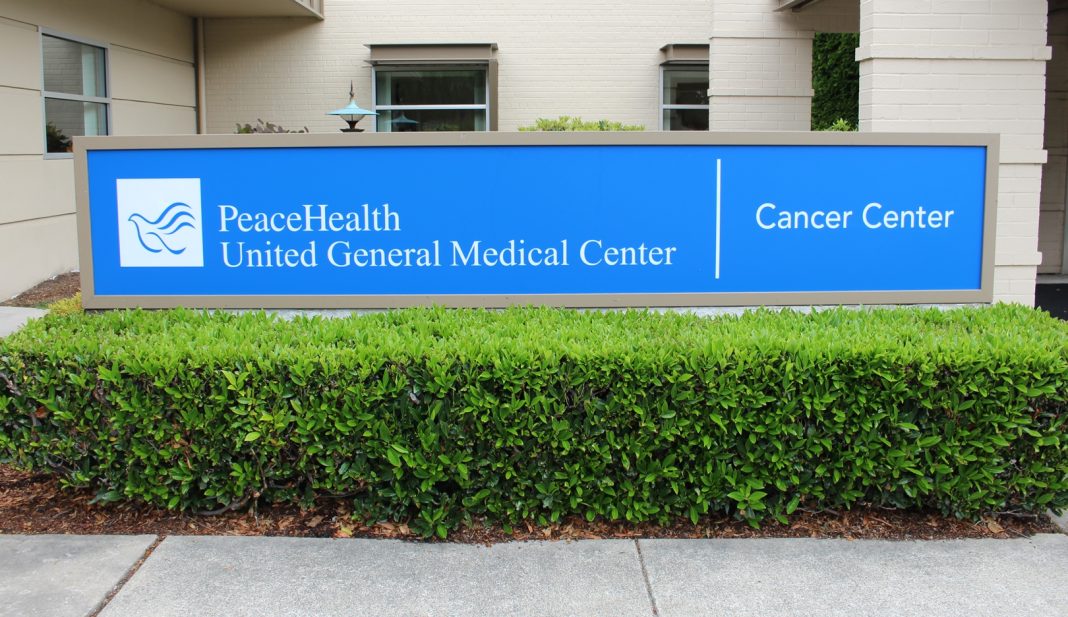Despite an increase in breast cancer rates among the general population – and the odds that one in eight American women will be diagnosed with breast cancer in their lifetimes – death rates continue falling thanks to the reliability of both preventative screenings and cancer treatments. And at Sedro-Woolley’s Breast Care Suite at PeaceHealth United General Medical Center, there’s never been a better time to schedule and receive a mammogram.
This October, every UG patient who receives their annual or bi-annual preventative screening – generally recommended for all women beginning at age 40 – gets a goody bag of pink-themed swag. Patients are also entered into a raffle for a gift certificate to Burlington’s Train Wreck Bar & Grill. Schedule your mammogram today by calling 360.856.7244.
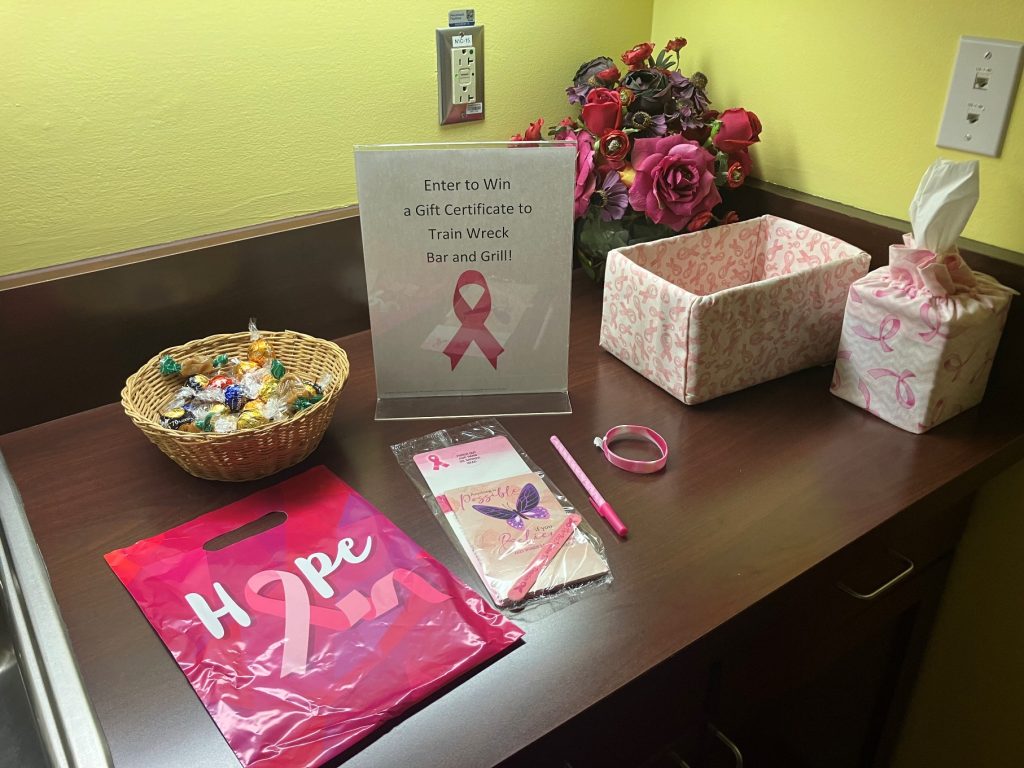
Doctor Joshua Schulte, a general surgeon who includes minimally-invasive breast cancer surgery among his specialties, says the days of breast cancer patients presenting with sizeable tumors are fairly rare in 2024.
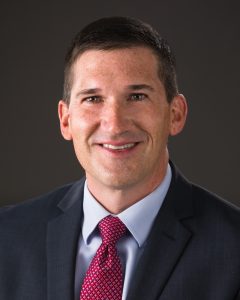
“Most breast cancer patients go in for a routine screening and find an abnormality,” he says. “It’s mostly smaller lesions that are easily treatable.”
The earlier a cancer is caught through screening, the less surgery may be required, and the quicker a patient can get back to leading a normal life.
Reliable Cancer Testing at PeaceHealth
Over time, the sensitivity of mammograms has progressed to about 80% reliability. Modern 3-D mammography, Schulte says, has allowed discovery of small issues that used to be missed in traditional scans, especially among patients with denser breast tissue.
Even for the remaining 20% of uncertainty, Schulte adds, the frequency of receiving mammograms and the inclusion of additional screenings like MRIs often make up the difference in catching anything abnormal.
So, what does it actually mean to have “dense breasts?”
Schulte explains that every breast has two components: fatty tissue and ducts. And some tissue is denser than others. For those with denser tissue, the addition of higher-resolution studies like MRIs may be required.
“Looking at a mammogram of an older person with fatty tissue, we can kind of see right through it,” he says. “And in younger patients – and the reason we don’t start mammograms before 40 – the breast density is often so cloudy that, often, even bigger tumors would be missed.”
Many insurance companies no longer require referrals for mammograms, meaning that scheduling one can be as simple as calling the hospital’s imagining department. Others may still need a primary care referral.
Either way, once in United General’s system, recall reminders are automatically sent to patients every year, meaning a referral is never needed again.
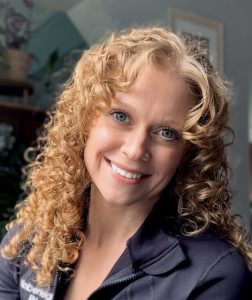
Breast Cancer Self-Exam Knowledge
Of course, women are also encouraged to conduct regular self-examinations of their breasts. The habit of checking can potentially give someone a better chance of noticing more subtle changes. Kimberleigh Boomsluiter, a registered nurse lead at United General, says that making the most of self-exams means properly educating women on what to look for.
“I think one of the education gaps in our society is that we’re told to do these self-exams, yet there really has never been a model of what to feel for,” she says. “What is a lump, and what isn’t? Sometimes at the base of your breast, you can feel like there are lumps there, but those are actually more ducts.”
To help, United General recently ordered a silicone breast model with seven different inserts – covering the majority of breast lump styles – for patients to feel, giving them a better frame of reference for self-exam findings.
Breast Cancer Treatment Options
If breast cancer is found, United General’s Cancer Center offers a range of surgical and non-surgical options for successful treatment.
Schulte says that in the 15 years he’s been practicing medicine, groundbreaking steps in non-surgical treatments have taken place. Doctors have learned much more about receptors and genetics, he adds, helping better tailor therapies to individual patients.
United General offers both chemotherapy and hormonal therapy for breast cancer treatment, as well as radiation, which typically takes place after a breast cancer surgery to ensure the cancer is totally gone.
The hospital will welcome a new, high-precision linear accelerator—the Varian TrueBeam – for radiation therapy in the spring of 2025. Schulte says the targeted technology offers the most advanced radiation treatment available for cancer patients, giving clinicians the ability to tailor treatments for each patient’s unique condition. The new LINAC will replace the hospital’s 18-year-old model. Linear accelerators provide more precision than traditional external beam, broad-spectrum radiation, and can limit the spread of damage and complications.
Surgical interventions range from an incisional tissue biopsy for confirming cancer to partial and full mastectomies, where some or all of the breast is removed. For partial removals (also known as lumpectomies), United General can use the SAVI SCOUT, a piece of detecting metal about the size of a rice grain that is placed inside the breast, next to a tumor.
The component communicates with a surgeon’s equipment, allowing them to minimize the amount of healthy breast tissue removed while also reducing chances of needing a second removal procedure, Schulte says.
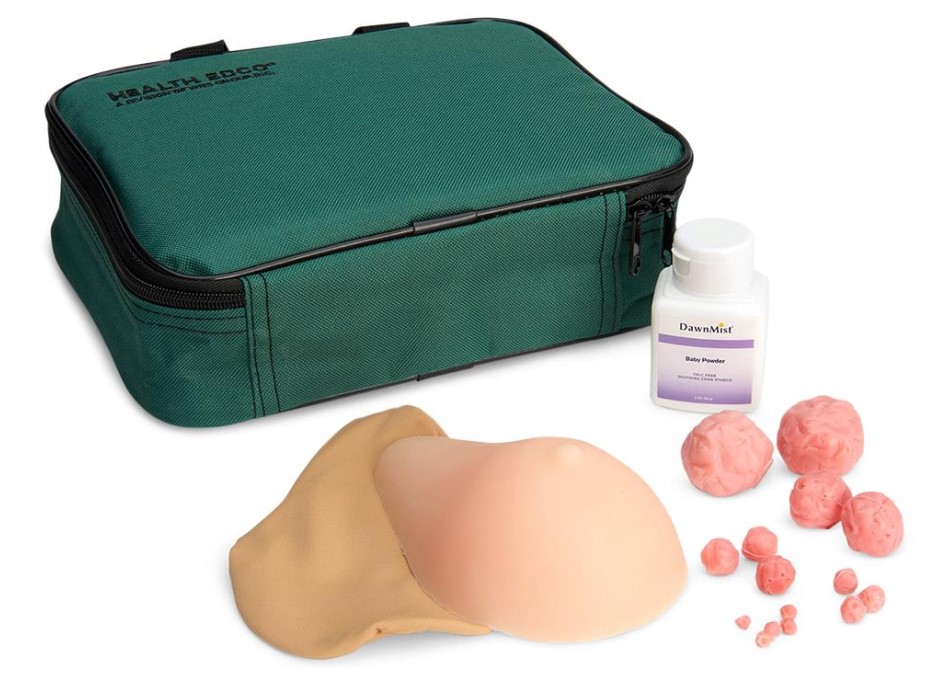
PeaceHealth Believes in ‘Whole Person’ Treatment for Breast Cancer
Boomsluiter points out that breast cancer does not discriminate, affecting patients of all ages and backgrounds, and sometimes even men. Regardless of who you are, it can be scary.
Dealing with a diagnosis, treatment and recovery is aided by United General’s ability to provide patient resources like physical, occupational and massage therapies. It’s also aided by a care team that offers reassurance before, during and even after treatment; Boomsluiter has received phone calls from patients needing moral support months after surgery.
“For anybody with a breast cancer diagnosis, their outcomes are going to be better if they are surrounded with good support,” she says. “And not just support from the medical side of things, but support that’s going towards the social, mental health and access components.”
Time is also of the essence, which is why United General provides a screening-diagnosis-treatment timeline that’s considered very quick.
“For any human out there who is scared of having a mammogram, and scared of having a result and getting a bad diagnosis, I think there’s a level of comfort that can be taken that your local community hospital has the capacity to get you through this rapidly and get that cancer out very quickly,” Boomsluiter says.
Schedule your screening today at Sedro-Woolley’s Breast Care Suite at PeaceHealth United General Medical Center.
Sponsored
































